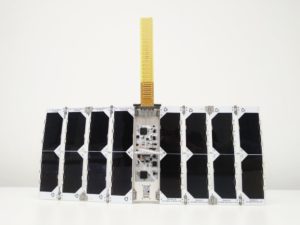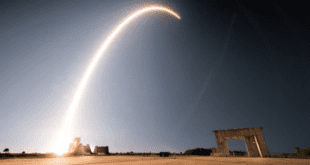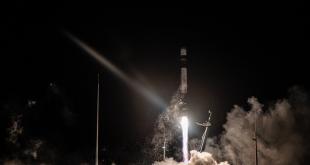
Scottish New Space company Alba Orbital has announced that it has customers for its second Alba Cluster Mission slated for a third quarter 2019 launch on a Rocket Lab Electron launch vehicle from New Zealand.
The Alba Cluster 2 mission will launch seven PocketQube satellites from the AlbaPod satellite deployer once the Rocket Lab Electron launch vehicle reaches low-Earth orbit later this year. The Alba Orbital-made PocketQube satellites are 5cm x 5cm x 5cm cube-shaped satellites that can be stacked together to make modular and larger capabilities for clients.
Among the PocketQube satellites included in the Alba Cluster 2 mission are a spectrum monitoring capability that aims to map spectrum use around the world and built by the Budapest University of Technology and Economics in Hungary; an optical camera built by U.S. company Mini-Cubes, and a capability built by Hungarian company Advanced Technology of Laser that is designed to test new thermal isolation material in the vacuum of space.
Others include unidentified clients from Germany and Spain, and as previously reported in SpaceWatch.Global, two Unicorn-2 PocketQube satellites for U.S. start-up company Stara Space that are named NOOR-1A and NOOR-1B and that will demonstrate a LEO-LEO intersatellite link, encrypted communication, ADCS, and integration with ground station software that allows third party satellites to request data transfer, crucial technologies required to create a real-time global communications constellation.
“Getting a satellite to orbit has traditionally cost six figures, taken years and is prone to many delays,” said Tom Walkinshaw, Alba Orbital’s CEO, in an interview with Scottish newspaper The National.
“Alba’s Launch Cluster 2 alleviate these problems, significantly reducing the barriers to launch PocketQubes in a regular and cost effective manner. This will help fulfil Alba Orbital’s goal of democratising access to space,” Walkinshaw said.
“We are looking forward to working with Peter and the Rocket Lab team,” he added.
Peter Beck, founder and CEO of Rocket Lab, said, “The satellites of today are getting smaller, doing more and costing less to build, but until now it has been a challenge for them to get to orbit.”
“By partnering with Alba Orbital for a rideshare on a Rocket Lab Electron, these small but mighty payloads will get to orbit faster, experiencing a first-class ride and precise orbital insertion to maximise their potential on orbit,” added Beck.





